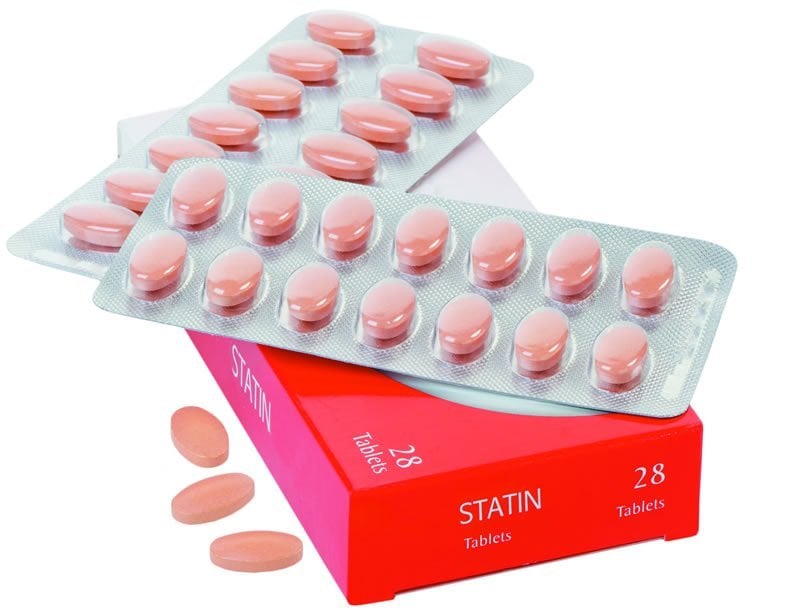Summary: Study reveals there is no link between memory decline and statin use in older adults. Additionally, no association was found between statin use and cognitive decline in those with genetic risk factors for dementia.
Source: Garvan Institute of Medical Research
Findings from more than 1,000 elderly individuals assessed over six years have revealed no links between statin medication and cognitive decline, such as memory loss, presenting new advice amidst some consumer concerns that statins may have a negative impact on cognitive health.
The collaborative study, led by researchers at the Garvan Institute of Medical Research and the Centre for Healthy Brain Ageing (CHeBA), UNSW Sydney, shows that statin use is even protective against memory decline in some individuals at risk of dementia.
The research is published in the Journal of the American College of Cardiology.
“We carried out the most comprehensive analysis of cognition in elderly statin users to date, and found no results to support that cholesterol-lowering statins cause memory impairment,” says first author Professor Katherine Samaras, Head of the Clinical Obesity, Nutrition and Adipose Biology lab at the Garvan Institute and endocrinologist at St Vincent’s Hospital Sydney.
“Many factors can contribute to the cognitive symptoms that isolated case reports describe. What we’ve come away with from this study is a reassurance for consumers to feel more confident about their statin prescription.”
Tracking cognition over time
Statins are among the most widely prescribed medications, safely administered since the 1990s to treat people with heart disease or high cholesterol to reduce the risk of future heart disease events. However, isolated case reports of cognitive decline in statin users have concerned some consumers. Up to half the individuals prescribed statin therapy do not fill their prescription largely due to this concern, which carries a significant impact on public health, says Professor Samaras.
The authors of the current study assessed changes to the brain in 1,037 elderly individuals, measuring five areas of cognition using 13 different tests and MRI scans of the brain, over six years.

“Controlling for important and potentially contributory factors, such as age, sex and obesity, we found no difference in the rate by which memory and other aspects of cognition changed over time, between statin users and those who had never used the medication. There was also no difference in the change in brain volumes between the two groups,” says Professor Samaras.
Protective effects
Further, the researchers found that in individuals with risk factors for dementia, including heart disease or diabetes, statin use slowed down cognitive decline, compared to those with the same risk factors who did not take statin medication.
“Our findings demonstrate how crucial a healthy metabolism is to brain function, and how therapies can modulate this to promote healthy aging,” says Professor Samaras.
The study used data from CHeBA’s Sydney Memory and Ageing Study; an observational study of older community-dwelling Australians that commenced in 2005 and researches the effects of aging on cognition over time.
Senior author Professor Perminder Sachdev, Co-Director of CHeBA, says: “The Sydney Memory and Ageing study is now in its 14th year and has permitted us to ask many important questions in relation to the brain health of the elderly.
“In this study our data reassuringly suggests that the use of statins to lower cholesterol levels is not likely to adversely affect memory function. Since it is an observational study, the findings should not be considered conclusive. However, the evidence is mounting that statins are safe in relation to brain health and this concern should not preclude their use in individuals who are likely to benefit from lower cholesterol levels.”
Funding: This research was supported by the Australian Government’s National Health and Medical Research Council (Dementia Research Grant 510124).
Source:
Garvan Institute of Medical Research
Media Contacts:
Viviane Richter – Garvan Institute of Medical Research
Image Source:
The image is credited to Harvard University.
Original Research: Closed access
“Effects of Statins on Memory, Cognition, and Brain Volume in the Elderly”. Katherine Samaras et al.
Journal of the American College of Cardiology doi:10.1016/j.jacc.2019.09.04.
Abstract
Effects of Statins on Memory, Cognition, and Brain Volume in the Elderly
Background
There is widespread consumer concern that statin use may be associated with impaired memory and cognitive decline.
Objectives
This study sought to examine the association between statin use and changes in memory and global cognition in the elderly population over 6 years and brain volumes over 2 years. Interactions between statin use and known dementia risk factors were examined.
Methods
Prospective observational study of community-dwelling elderly Australians age 70 to 90 years (the MAS [Sydney Memory and Ageing Study], n = 1,037). Outcome measures were memory and global cognition (by neuropsychological testing every 2 years) and total brain, hippocampal and parahippocampal volumes (by magnetic resonance) in a subgroup (n = 526). Analyses applied linear mixed modeling, including the covariates of age, sex, education, body mass index, heart disease, diabetes, hypertension, stroke, smoking, and apolipoprotein Eε4 carriage. Interactions were sought between statin use and dementia risk factors.
Results
Over 6 years there was no difference in the rate of decline in memory or global cognition between statin users and never users. Statin initiation during the observation period was associated with blunting the rate of memory decline. Exploratory analyses found statin use was associated with attenuated decline in specific memory test performance in participants with heart disease and apolipoprotein Eε4 carriage. There was no difference in brain volume changes between statin users and never users.
Conclusions
In community-dwelling elderly Australians, statin therapy was not associated with any greater decline in memory or cognition over 6 years. These data are reassuring for consumers concerned about statin use and risk of memory decline.






